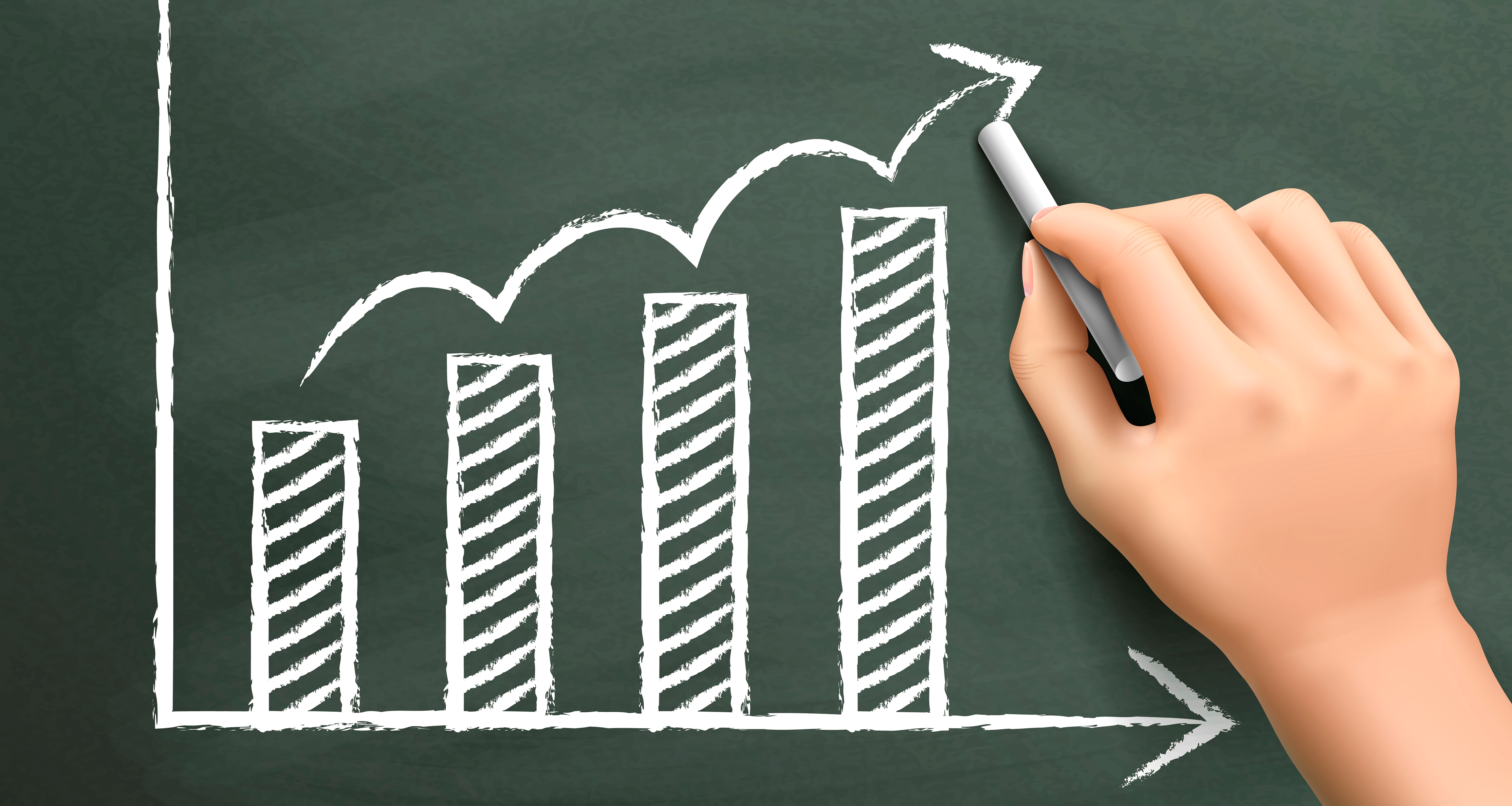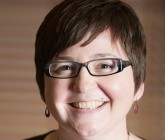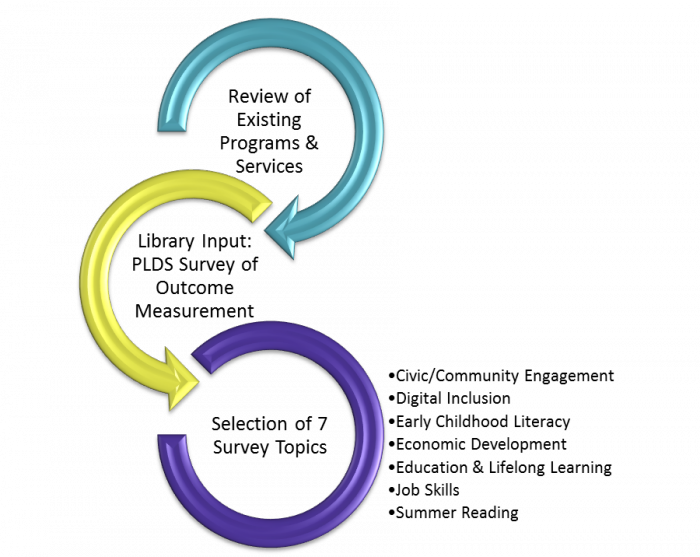Project Outcome Launch – Seven Surveys To Measure Impact

Project Outcome is an initiative of the Public Library Association (PLA) that equips libraries with short, easy-to-use, patron-focused surveys designed to measure the impact of library services such as childhood literacy, computer training, and workforce development. The project focuses on measuring the outcomes of the programs that many public libraries have in common, thereby minimizing the work for each library in developing measures while also maximizing impact by giving libraries a shared language and the ability to aggregate data. Project Outcome will roll out its surveys and supporting tools—including customizable data dashboards, webinars and resources to help libraries use their findings to make improvements— at the 2015 American Library Association conference.
Since 2013, I have served on the PLA Task Force that laid the groundwork for the creation of Project Outcome, in particular researching and developing the seven surveys that will be made available to libraries at the Project Outcome launch. This work began with a brainstorming process and review of the wide range of programs and services offered by public libraries. We compiled those services into twelve broad service areas, and then we turned to the library community for input.
Project Outcome Task Force Survey Topic Development Process
To gather feedback from a large number of public libraries, we used PLA’s Public Library Data Service (PLDS) survey, an annual financial, resource, usage, and technology survey of public libraries in the United States and Canada, and added questions about outcome measurement in its special section. We asked survey respondents to reflect on the twelve service areas we had identified and to:
- rate how important they felt it was to measure outcomes in each area;
- rate how ready their library was to measure those outcomes;
- indicate whether their library currently measured outcomes in those twelve service areas;
- indicate whether they had plans to do so in the future; and,
- share examples of how their library measured outcomes in any service area.
420 libraries of all sizes responded to our PLDS special section on outcome measurement. The findings revealed that Early Childhood Literacy was the highest priority area for respondents followed by Use of Library Materials, Encourage Reading, Digital Access and Learning, Community Engagement, and the other eight service areas. The task force then dug into the top priority services to identify what it would take to define and measure outcomes in those areas. We wrestled with issues related to the specific activities associated with each service area, the community needs those activities seek to address, the target audiences served, and the unique challenges to data collection for each service area. We also struggled with how we could develop measures that would be flexible enough to be used by libraries of all sizes and demographics.
Through this process we further clarified and refined the categories, resulting in the final seven service areas for Project Outcome. The process also helped us zero in on our measurement strategy of using brief, highly targeted surveys. We developed pilot survey instruments for the seven service areas and field tested those at 27 library locations in late 2014.
We are now ready to deploy the pilot survey instruments within the larger public library community at the Project Outcome launch on June 26, 2015. I am excited to see what we will learn about the impact of public library programs and how libraries will use the data to demonstrate their value.
 Rebecca Teasdale is a librarian, evaluator, researcher and trainer. She has over 15 years of experience leading public libraries and assessing library effectiveness in Illinois and Oregon. Rebecca has also conducted market research for nonprofits including arts, cultural and social service organizations.
Rebecca Teasdale is a librarian, evaluator, researcher and trainer. She has over 15 years of experience leading public libraries and assessing library effectiveness in Illinois and Oregon. Rebecca has also conducted market research for nonprofits including arts, cultural and social service organizations.
Rebecca currently serves on PLA’s Performance Measurement Task Force and Public Library Data Service (PLDS) Statistical Report Advisory Committee. She holds an MA in library science from the University of Iowa and a post-graduate certificate in program evaluation from the University of Minnesota. She is currently a doctoral student in Educational Psychology at the University of Illinois at Urbana-Champaign where she studies methodologies for evaluation of public library services.














